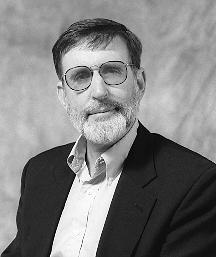Networking pioneer Landweber named to Internet Hall of Fame
The decision to put Lawrence Landweber in the “Innovators” circle of the newly-created Internet Hall of Fame is not likely one that cost the nominating committee any sleep.
“What’s neat about this field is that there is always something new,” says Landweber, the University of Wisconsin–Madison emeritus professor of computer sciences. “Everywhere you look you find new, exciting applications opened up by new, exciting technologies.”

Landweber
Landweber joined 31 other Internet luminaries — names like Vint Cerf (“Father of the Internet”), Tim Berners-Lee (inventor of the World Wide Web) and Ray Tomlinson (he chose the “@” symbol and gave us email) — in the hall’s first class of inductees in a ceremony in Geneva.
“I’m honored to be in that group,” Landweber says. “There are people who actually did the technical work underlying the Internet, people who developed applications for it and people who advocated for its use and made sure it developed the way it has.”
Landweber and his colleagues at UW–Madison had its feet in several of those camps, creating and nurturing Computer Science Network (CSNET), an early 1980s precursor to the Internet designed to connect researchers in university and private settings.
Marvin Solomon (now also a computer science professor emeritus) and research associate Michael Litzkow developed the name server for CSNET, an early example of a distributed directory service to guide network communications.
Landweber drew in interested scientists from around the world to participate, creating — according to his Hall of Fame citation — “the first networking gateways between the US and countries in Europe, Asia and Latin America.”
“As soon as I found out there was someone in a country using networks, I’d track them down to see if they wanted to participate,” he says. “I built a database I was pretty proud of, but they all still fit in a modest-sized classroom when we’d organize a conference.”
There were nearly 200 nodes in CSNET by 1984, all operated by people deserving of status as pioneers.
“What it emphasizes is that there’s really no one person who is responsible for the Internet — maybe not even 10 people,” Landweber says. “In every one of those countries that we recruited, there’s someone who took the initiative. That’s someone who helped make the Internet what it is.”
That the technology they were using and championing — “packet switching,” a method developed by Cerf and fellow inductee Robert Kahn to transmit data chopped into little chunks — would become the Internet as we know it was hardly a sure thing.
“There was plenty of competition, and the Internet took more than 20 years to go from research to acceptance as a standard communications medium,” Landweber says. “That’s a lesson for people who have negative thoughts about research. You never know how research coming out of the lab is going to be received and eventually applied.”
Landweber has served as chairman and president of the Internet Society, which established the Internet Hall of Fame. As ubiquitous and monolithic as the Internet may seem, he says, it still needs the Society’s advocacy and protection.
There are telecommunications companies fighting against the unbiased use of their wires, countries looking to use the Internet as a tool to control their people rather than a tool for democratic communication, myriad privacy issues and major access hurdles for people in rural areas and developing countries, according to Landweber.
“Yes, everything is great,” he says. “But you have to constantly protect that greatness.”
These days, the innovator is consulting on a new data networking technology, OpenFlow/SDN.
“We’re looking at coupling it with wireless on university campuses as a test bed for people to experiment outside the standard Internet protocols,” Landweber says. “It’s immature, unproven. And if it’s going to catch on, it may take another 10 or 20 years.”
That has a familiar ring to it.
“If we’re going to do something, let’s encourage more people to go into computer science,” Landweber says. “The world needs them. There’s so much they can do”




